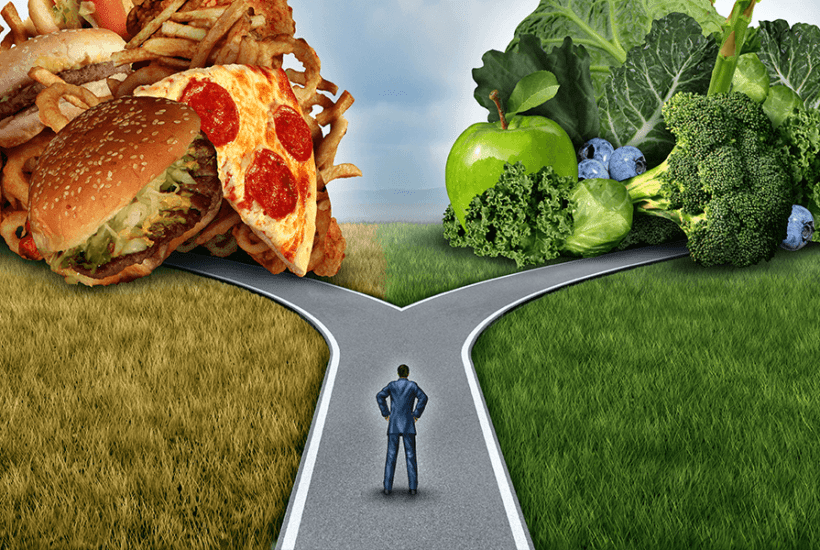When it comes to matters of health and well-being, the terms “food” and “nutrition” are often used interchangeably. However, they represent distinct aspects of our dietary choices and have different roles in maintaining our health. In this comprehensive guide, we will delve deep into the dissimilarities between food and nutrition, shed light on their individual significance, and address frequently asked questions along the way.

1. What is Food?
Food is any substance that we consume to provide our bodies with energy, support growth, and maintain overall health. It includes a wide range of items, from fruits and vegetables to meat, grains, and processed products like candy and chips. Essentially, anything that can be eaten or drunk falls into the category of food.
2. What is Nutrition?
Nutrition, on the other hand, refers to the science of how our body uses the substances found in food to maintain and improve our health. It involves the processes of digestion, absorption, metabolism, and utilization of nutrients to support our body’s various functions.
3. The Fundamental Differences:
Now that we have the basic definitions in place, let’s delve into the key differences between food and nutrition:
Composition vs. Function
Food: Food consists of a vast array of substances, including macronutrients (carbohydrates, proteins, and fats) and micronutrients (vitamins and minerals). It is a complex mixture of various components, each serving a different purpose in the body.
Nutrition: Nutrition focuses on the role these components play in our health. It’s not just about what we eat, but how our bodies use the nutrients within that food to function optimally.
4. Quantity vs. Quality:
Food: Often, our food choices are based on quantity and taste preferences. We may consume large portions of unhealthy foods that are high in calories but lack essential nutrients.
Nutrition: Nutrition is about the quality of the nutrients we ingest. It emphasizes the importance of choosing foods that provide the necessary vitamins, minerals, and other vital components, even if we consume them in smaller quantities.
5. Short-Term vs. Long-Term:
Food: Food primarily addresses immediate hunger and satiation. It fulfills our immediate dietary needs and cravings.
Nutrition: Nutrition looks at the long-term impact of our dietary choices on our health. It considers how our diet can influence the risk of chronic diseases, energy levels, and overall well-being over time.
Frequently Asked Questions
Q: Can’t I just eat whatever I like and still be healthy?
While you can indulge in occasional treats, a balanced diet that prioritizes nutrition is essential for long-term health. Consistently consuming foods lacking in essential nutrients can lead to deficiencies and health problems.
Q: What are macronutrients and micronutrients?
Macronutrients: These are nutrients required in large quantities, including carbohydrates, proteins, and fats. They provide energy and are essential for bodily functions.
Micronutrients: These are nutrients needed in smaller amounts, such as vitamins and minerals. They are crucial for various metabolic processes and overall health.
Q: How can I improve my nutrition?
To enhance your nutrition, focus on consuming a variety of whole foods, including fruits, vegetables, lean proteins, whole grains, and healthy fats. Limit your intake of processed foods that are heavy in harmful fats and added sugars.
Q: Are dietary supplements necessary for good nutrition?
Supplements can be useful for addressing specific nutrient deficiencies, but they should not replace a balanced diet. It’s best to obtain nutrients from whole foods whenever possible.
Q: Can poor nutrition lead to health problems?
Yes, inadequate nutrition can lead to various health issues, including obesity, heart disease, diabetes, and nutrient deficiencies. A well-balanced diet is crucial for preventing these problems.
Q: What is the role of hydration in nutrition?
Hydration is a vital aspect of nutrition. Water is necessary for digestion, nutrient absorption, and overall bodily functions. For healthy nutrition, staying hydrated is crucial.
Q: How can I make healthier food choices?
Reading food labels, meal planning, and educating yourself about nutrition are great ways to make healthier food choices. A trained dietician can offer more specialized advice by consulting with you.
[blockquote align=”none” author=””]
Final Thoughts
In summary, while food is what we eat and enjoy, nutrition is the science behind how our bodies use the substances within that food. Both are integral to our health, with food providing the raw materials, and nutrition ensuring that those materials are used effectively. Striking a balance between enjoying our favorite foods and nourishing our bodies with essential nutrients is the key to a healthy and fulfilling life. By making informed food choices and considering the nutritional value of what we eat, we can maintain our well-being and reduce the risk of chronic diseases in the long run.
[/blockquote]
